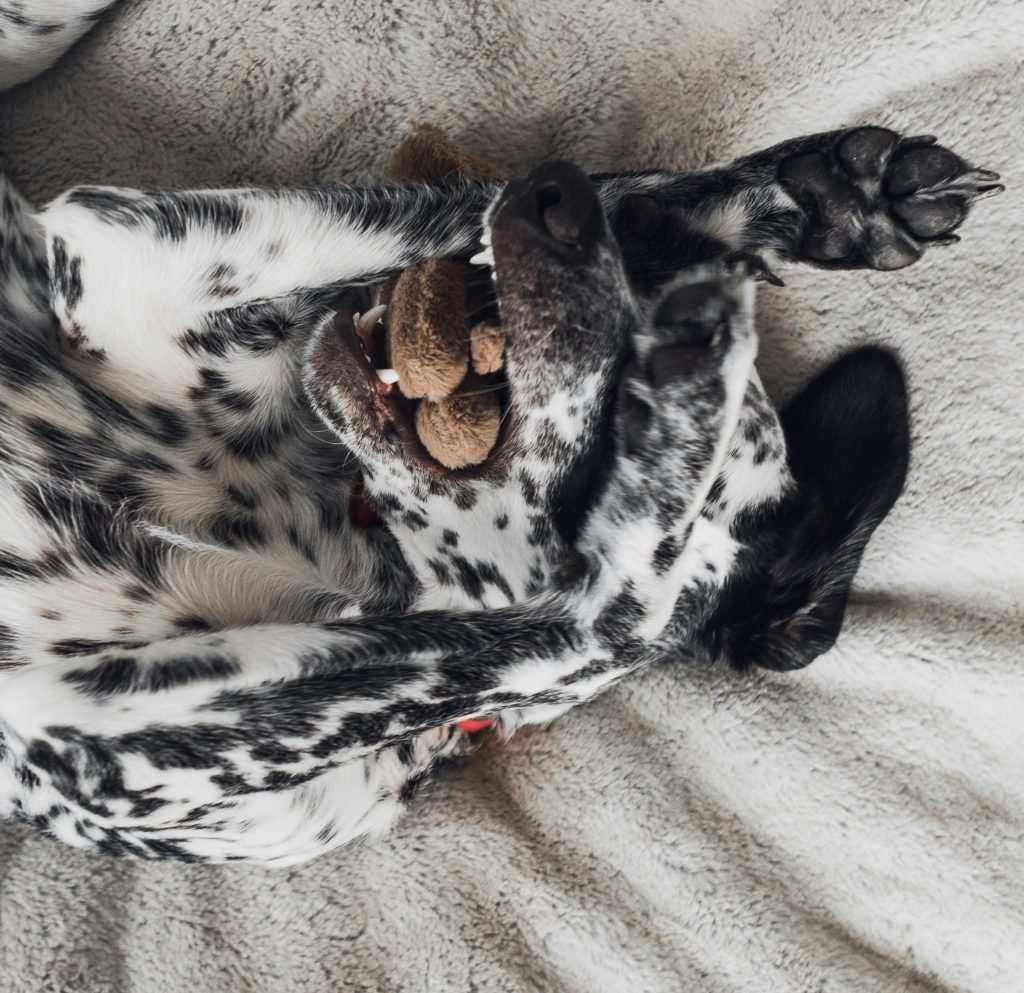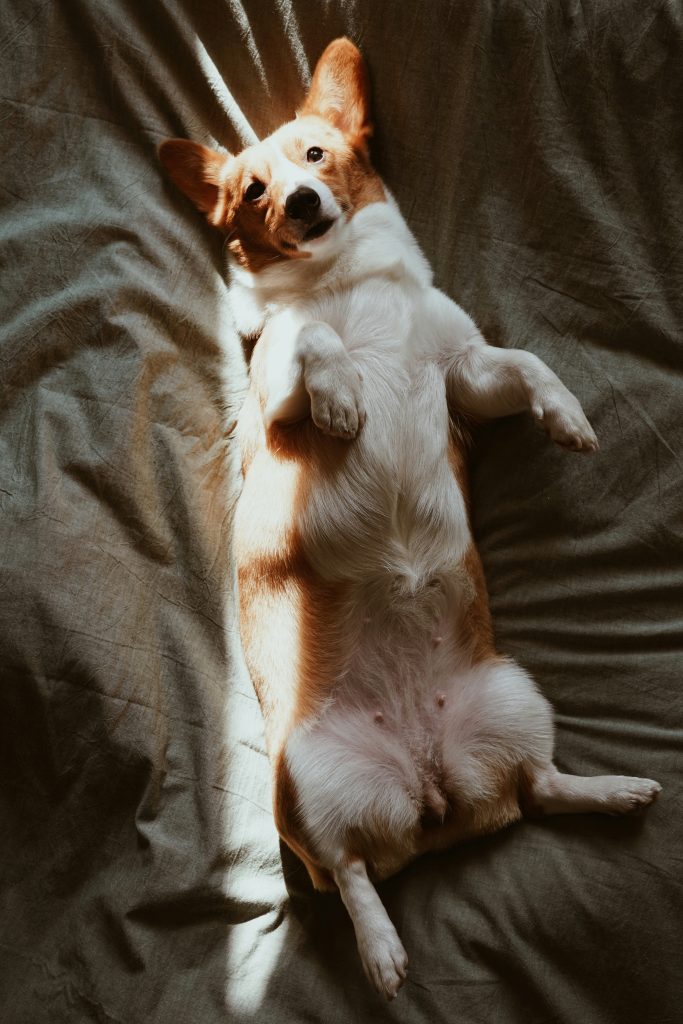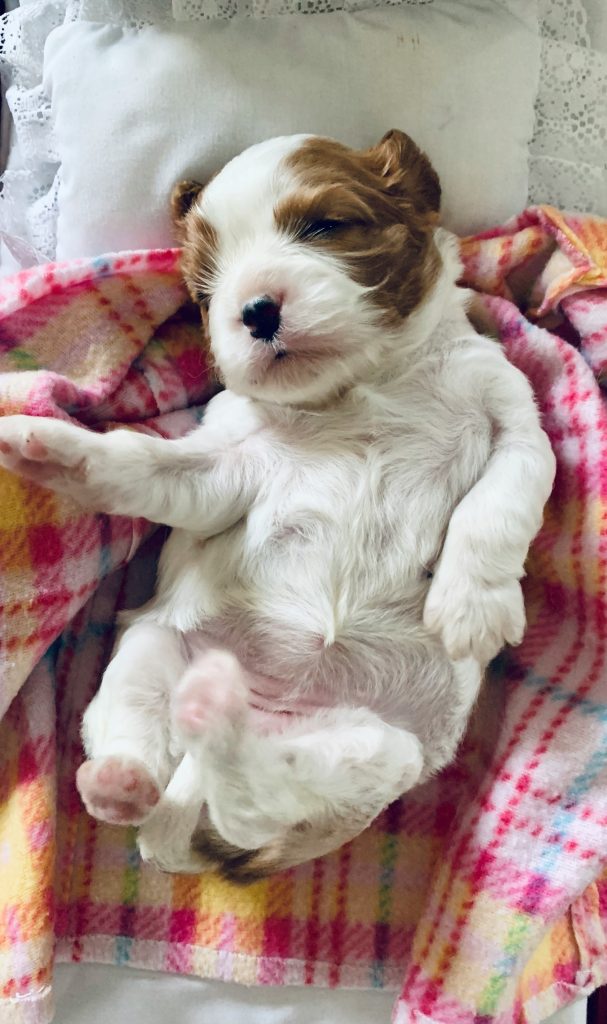Your dog’s gut health is closely tied to their diet. Just as we feel better when we eat well, dogs thrive when their nutritional needs are met and their digestive systems stay balanced. By making a few thoughtful changes to your dog’s diet, you can significantly improve their gut health, boost immunity, and support overall wellness.
In this blog, we’ll explore simple, practical diet tips you can use to promote a healthier gut for your pup.

Why Diet Matters for Gut Health
The gut is home to a vast ecosystem of microorganisms known as the microbiome. This community of bacteria, fungi, and other microbes plays a key role in digestion, nutrient absorption, immune function, and even mood regulation.
A diet that supports the microbiome helps:
- Keep harmful bacteria in check
- Improve digestion and nutrient absorption
- Strengthen the immune system
- Reduce inflammation
- Promote a shiny coat and healthy skin
Let’s break down some diet strategies to support your dog’s gut.
1. Feed a High-Quality, Balanced Diet
The foundation of gut health is good nutrition. Choose a dog food that:
- Meets AAFCO (Association of American Feed Control Officials) standards
- Lists real meat as the first ingredient
- Contains wholesome grains, vegetables, or fruits (unless your dog needs grain-free)
- Avoids artificial additives, fillers, and by-products
High-quality ingredients are easier to digest and offer more nutritional value.
2. Incorporate Probiotics
Probiotics are live bacteria that help maintain a healthy balance in the gut. You can provide probiotics through:
- Supplements (capsules, powders, chews) made for dogs
- Natural sources like plain, unsweetened yogurt or kefir (in small amounts)
Start slowly and monitor your dog for any signs of digestive upset.
3. Add Prebiotics
Prebiotics are fibers that feed good bacteria. Look for dog foods with prebiotic ingredients like:
- Chicory root
- Beet pulp
- Oats
- Sweet potatoes
You can also give small amounts of fresh, dog-safe vegetables like pumpkin or carrots for a fiber boost.

4. Avoid Sudden Diet Changes
A sudden switch in food can disrupt your dog’s gut and cause diarrhea, gas, or vomiting. Always transition to a new diet gradually:
- Day 1–2: 25% new food, 75% old food
- Day 3–4: 50% new food, 50% old food
- Day 5–6: 75% new food, 25% old food
- Day 7: 100% new food
5. Watch Out for Food Allergies and Intolerances
If your dog has recurring digestive issues, skin problems, or ear infections, they may have a food allergy or intolerance. Common triggers include:
- Beef
- Chicken
- Dairy
- Wheat
- Corn
Work with your veterinarian to run a food elimination trial if you suspect allergies.
6. Provide Fresh, Clean Water
Hydration is critical for digestion and overall health. Make sure your dog always has access to clean, fresh water.
7. Offer Healthy Treats and Limit Table Scraps
Stick to gut-friendly treats like:
- Freeze-dried meats
- Sweet potato chews
- Carrot sticks
Avoid high-fat table scraps, greasy leftovers, and processed human snacks, which can upset your dog’s stomach.
8. Control Portion Sizes
Overfeeding can stress the digestive system, leading to obesity and related health problems. Follow portion guidelines on your dog’s food package and adjust based on activity level, age, and weight.
9. Consider Digestive Enzymes (if recommended)
Some dogs — especially seniors or those with digestive disorders — may benefit from added enzymes that help break down food. Talk to your vet before adding these to your dog’s diet.

Signs Your Dog’s Diet Is Helping
When you get your dog’s diet right, you’ll notice:
- Firm, well-formed stools
- Less gas or bloating
- A shiny coat and healthy skin
- Good energy levels
- A happy, eager appetite
If you don’t see improvement or if symptoms worsen, consult your veterinarian.
Final Thoughts
Supporting your dog’s gut health doesn’t require complicated formulas or fancy products — just thoughtful, consistent care. By focusing on high-quality food, probiotics, prebiotics, gradual transitions, and mindful treat choices, you set the foundation for a healthy, thriving dog.
A happy gut equals a happy pup — and that’s something both of you will appreciate every day!
